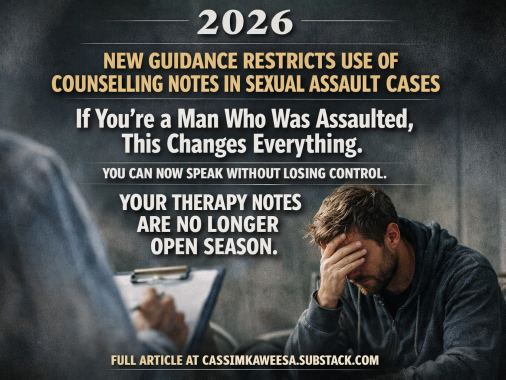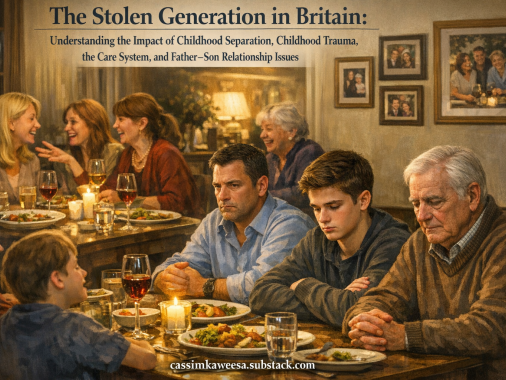
New Guidance Restricts Use of Counselling Notes in Sexual Assault Cases: If You’re a Man Who Was Assaulted, This Changes Everything, You Can Now Speak Without Losing Control, Your Therapy Notes Are No Longer Open Season
New Guidance Restricts Use of Counselling Notes in Sexual Assault Cases: If You’re a Man Who Was Assaulted, This Changes Everything. You Can Now Speak Without Losing Control. Your Therapy Notes Are No Longer Open Season If you are a man who has experienced rape or sexual assault, there is a good chance you have […]

How Therapy Can Help Men Who Are ‘Cleaning House’ at 60–90 Years Old
In the UK today, there are an estimated 625,000 people aged 90 or over, more than double the number there were twenty years ago, and men in their 60s can now expect, on average, almost 19 more years of life after turning 65. There are now around 210,000 men aged 90 or over in the […]

The Stolen Generation in Britain: Understanding the Impact of Childhood Separation, Childhood Trauma, the Care System, and Father–Son Relationship Issues
In recent years, researchers in the UK have begun to quantify the long-term outcomes of children who have been removed from their families and placed into the care system. Administrative data linking children’s social care records across England, Scotland, Wales and Northern Ireland show that care-experienced young people are significantly more likely to face disadvantage […]

He Never Got to Go to Ibiza with the Lads: The Young Men Who Gave Up Their Youth to Care for a Parent
Young Adult Carers Overall A study analysing national caregiver data found that between 12% and 18% of all adult carers are young adults aged 18–25, and over half of these young adult carers are male. This data suggests that young men represent a meaningful share of caregiving within this age group, despite support systems often […]
Get in touch
Feel free to contact me if you have any questions about how counselling works, or to arrange an initial assessment appointment. This enables us to discuss the reasons you are thinking of coming to counselling, whether it could be helpful for you and whether I am the right therapist to help.
You can also call me on +44 78528 98135 if you would prefer to leave a message or speak to me first. I am happy to discuss any queries or questions you may have prior to arranging an initial appointment.
All enquires are usually answered within 24 hours, and all contact is strictly confidential and uses secure phone and email services.
